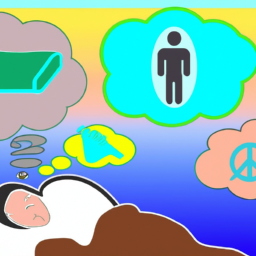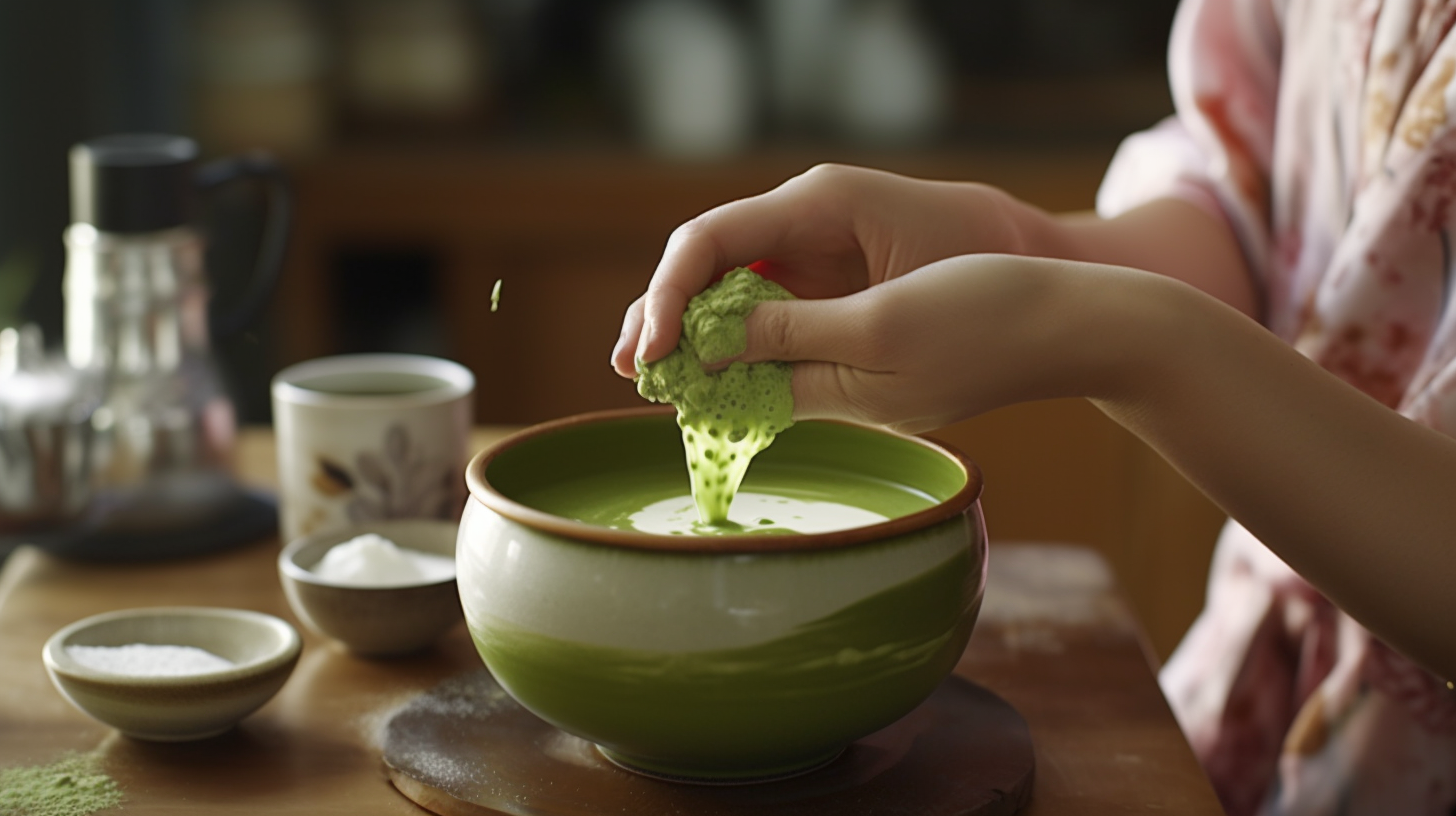As an individual constantly captivated by the enigmas of the human psyche, I frequently catch myself reflecting on the significance of our dreams.
One recurring symbol that appears in many people’s dreams is water. Whether it’s a calm lake, turbulent ocean, or rushing river, water can hold many different meanings and emotions in our subconscious minds.
In this article, we will explore the possible interpretations of water dreams and what they might be trying to tell us about ourselves and our lives. From personal symbolism to cultural significance, psychological analysis to real-life triggers, we will delve into all aspects of this intriguing topic.
So if you’ve ever wondered what your dreams about water could mean for you, keep reading and let’s dive into the depths of your subconscious together.
Key Takeaways
- Dreams about water can have varied meanings.
- Water is a powerful symbol associated with spirituality, purification, and transformation.
- The interpretation of water dreams depends on context and personal emotions.
- Dream journaling and analysis techniques can uncover hidden meanings in water dreams.
Common Water Dreams and Their Meanings
As you delve into the realm of dream interpretation, you may find yourself wondering what common water dreams and their meanings entail. Water is a powerful symbol in dreams, representing emotions, the unconscious mind, and even spirituality. However, interpreting water dreams can be challenging since there are so many different ways water can appear in our dreams.
One of the most common recurring water dreams is dreaming about drowning or being submerged in water. This could represent feelings of overwhelm or being unable to cope with life’s challenges. It may also indicate a fear of losing control or feeling emotionally overwhelmed by a particular situation.
Another common water dream is dreaming about a flood or tidal wave. This type of dream is often associated with emotions that have been building up within us and are now overwhelming us. It could also mean that significant changes are coming into our lives that we need to prepare for.
Water as a symbol in our dreams can have multiple interpretations depending on how it appears and interacts with other elements in the dream. Understanding these symbols can help us gain insight into ourselves and our emotional state.
Moving forward, let’s explore more deeply how water as a symbol plays out in our subconscious minds without skipping a beat!
Water as a Symbol
You can’t help but feel a sense of cleansing and renewal when you see the shimmering surface of a vast, blue ocean. Water has always been a powerful symbol in human culture, often associated with purification, spirituality, and transformation. Its calming effect on our minds and bodies is undeniable, making it an essential element in many religious ceremonies.
Symbolic meanings of water vary across different cultures and religions. In Christianity, water is used for baptism to symbolize rebirth and forgiveness of sins. In Hinduism, the Ganges River is considered sacred because it’s believed to wash away impurities both physical and spiritual. Native American tribes view water as a life-giving force that connects all living beings together.
Spiritual interpretations suggest that dreams about water represent our subconscious emotions or desires. For example, calm waters may indicate inner peace or emotional stability while choppy waters may represent internal turmoil or conflict. Floods might signify overwhelming emotions or situations beyond our control. These symbolic meanings can provide insight into our own personal journey through life.
Dreams about water are subjective experiences that hold different meanings for each individual based on their unique circumstances and perspectives. Understanding these symbolic meanings can help us gain deeper insights into ourselves and connect with our subconscious mind’s desires more effectively without realizing them consciously yet!
Personal Interpretation
When interpreting personal experiences with the symbolism of water, it’s important to consider the context and emotions surrounding the dream or situation. For example, if I had a dream about being in a calm ocean, my interpretation would differ depending on whether I felt peaceful or anxious during the dream.
Dream journaling can be helpful for tracking these details and identifying patterns over time. Another useful tool for analyzing dreams is to use different techniques such as free association or visualization. This can help uncover hidden meanings and connections between symbols in our dreams.
For instance, if I associate water with cleansing and renewal, then a dream about swimming in clear water could represent an emotional release or spiritual transformation. By exploring our personal associations with water and using dream analysis techniques, we can gain deeper insights into what our dreams are trying to tell us.
However, it’s also essential to recognize that cultural and historical significance plays a role in the symbolism of water as well. Therefore, understanding both personal and external factors can lead to a more comprehensive interpretation of our dreams.
Cultural and Historical Significance
Exploring the cultural and historical significance of water’s symbolism can add a new layer of understanding to our interpretation of dreams and personal experiences. Water has been used as a powerful symbol for centuries in different cultures around the world.
In Hinduism, water is seen as a purifier that cleanses the soul, while in Chinese culture, it represents good luck and prosperity. Similarly, Native American tribes view water as a life-giving force that connects all living beings.
Historically, dreams about water were interpreted as omens or messages from the divine. For example, if one dreamt of clear water, it was believed to be a sign of good fortune, while murky or turbulent waters signified impending danger or emotional turmoil. Dreaming of drowning or being swept away by water was often seen as a warning to take caution in one’s waking life.
By understanding these cultural and historical interpretations of water dreams, we can gain valuable insight into our own subconscious mind. However, it’s important to remember that these interpretations may vary depending on individual experiences and beliefs.
With this knowledge in mind, we can begin to explore how our own personal associations with water may influence our dream symbolism. As we delve deeper into psychological interpretation in the next section, we’ll examine how our unique experiences and emotions shape our dream symbols even further.
Psychological Interpretation
It’s natural to feel a sense of unease when examining the underlying psychological interpretations behind our subconscious symbols. Dreams about water can be particularly intriguing, as they hold a vast array of meanings depending on the dreamer’s experience and emotions.
Here are some possible explanations for what dreams about water could signify:
-
Dream journaling: Keeping a record of your dreams is an effective way to explore their meaning. Writing down each aspect of your dream, including the setting, characters, and feelings evoked during the dream can help you understand any patterns or recurring themes.
-
Dream analysis techniques: There are many ways to analyze dreams beyond keeping a journal. For example, interpreting symbolism through free association involves identifying key elements in your dream and then exploring what comes to mind when you think about those symbols.
Another technique is called Gestalt therapy, where you act out different parts of your dream as if it were happening in real life.
Through these methods, one may begin to uncover hidden meanings within their dreams that may provide insight into their waking life. However, it’s important to remember that there isn’t always one clear-cut interpretation for every dream symbol. The significance may vary based on personal experiences and context.
As we delve deeper into our subconscious minds through analyzing our dreams, it’s worth considering how these interpretations might translate into real-life triggers that evoke similar emotions or experiences. By recognizing these connections, we can better understand ourselves and improve our relationships with others without having to actively confront difficult situations step by step.
Real Life Triggers
You can better understand yourself and improve your relationships by recognizing the connections between hidden meanings in your dreams and real-life triggers that evoke similar emotions or experiences.
Environmental factors, such as a fear of drowning after experiencing a traumatic event near water, can manifest in dream symbolism related to water. Emotional triggers, such as feeling overwhelmed or out of control in waking life, can also be reflected through water symbolism in dreams.
For example, if you’ve recently experienced a breakup or other emotional upheaval, dreaming about rough waves or being caught in a stormy sea may reflect your feelings of turmoil and uncertainty. Alternatively, dreaming about swimming peacefully in calm waters could indicate a sense of inner peace and emotional stability.
By paying attention to these subtle cues from our subconscious minds, we can gain insight into our own emotional states and work towards healing and growth.
Recognizing the connection between real-life triggers and dream symbolism is just one step towards gaining more control over our dreams. With lucid dreaming techniques, we can actively engage with our dreams to explore their hidden meanings even further.
Lucid Dreaming Techniques
Mastering the art of lucid dreaming is like unlocking a secret door to your imagination, allowing you to control and manipulate the fictional world within your mind. Lucid dreaming is when one becomes aware that they are in a dream state and can take control of their actions, surroundings, and even the direction of their dreams.
Here are five techniques I’ve found helpful in achieving lucidity:
- Reality checks: Throughout the day, ask yourself if you’re dreaming by checking for common dream signs such as distorted time or unusual surroundings.
- Dream journaling: Upon waking up, record any dreams or fragments of dreams in a journal to help improve memory recall and increase awareness during future dream states.
- MILD (Mnemonic Induction of Lucid Dreams): Before going to bed, repeat affirmations such as "I’ll remember my dreams"or "I’ll become lucid in my dreams".
- WBTB (Wake Back To Bed): Set an alarm for approximately 4-6 hours after falling asleep. Wake up briefly, then focus on becoming aware and returning to sleep with the intention of entering a lucid dream.
- Visualization: Imagine yourself becoming lucid in your next dream before falling asleep.
By practicing these techniques regularly and consistently over time, you may be able to achieve greater control over your subconscious mind while asleep. Understanding sleep patterns is also important in achieving successful lucid dreaming experiences without disrupting necessary rest periods.
Understanding Sleep Patterns
To truly understand and improve your ability to lucid dream, it’s important to familiarize yourself with the different stages of sleep and how they can impact your dreaming experiences. One key aspect of understanding sleep patterns is recognizing the importance of deep sleep, which typically occurs in the first half of the night. During this stage, our brain waves slow down and our body restores itself, leading to feelings of physical refreshment upon waking up.
Another important factor in understanding our sleep patterns is circadian rhythms. These are our body’s internal clock that regulate when we feel alert or drowsy throughout the day. By paying attention to these rhythms and aligning our sleeping schedule accordingly, we can optimize the quality of our sleep and therefore enhance our dreaming experiences. For example, if you consistently wake up feeling groggy or struggle to fall asleep at night, adjusting your bedtime routine or exposure to light could help reset your circadian rhythm.
Being mindful of both deep sleep and circadian rhythms can greatly impact the quality of our dreams. By prioritizing a healthy sleeping routine that takes these factors into account, we can increase our chances of having more vivid and memorable dreams. In the next section, we will explore techniques for enhancing dream recall without interrupting natural sleeping patterns.
How to Enhance Dream Recall
I’ve always been fascinated by my dreams, but I often struggle to remember them in the morning. After doing some research, I discovered that there are several techniques for enhancing dream recall.
These include creating a sleep-friendly environment, practicing relaxation techniques, using aromatherapy, and avoiding stimulants before bed. By incorporating these habits into my bedtime routine, I hope to improve my ability to remember and interpret the messages from my dreams.
Creating a Sleep-friendly Environment
Creating a sleep-friendly environment can be as simple as adjusting the temperature and lighting in your bedroom. As someone who values good sleep hygiene, I have found that making some small tweaks to my sleeping space has made a big difference in the quality of my rest. One of the most important factors for me is keeping the room cool and dark, which helps signal to my body that it’s time to wind down for the night.
To help others create their own ideal sleep environment, I’ve put together a table with some tips and tricks that have worked well for me:
| Sleep-Friendly Environment Tips | Why it Matters |
|---|---|
| Keep the room cool | Lowers core body temperature, signals time to sleep |
| Use blackout curtains or shades | Blocks out light pollution from streetlights/neighbors’ homes |
| Turn off electronics | Reduces exposure to blue light, which can interfere with natural circadian rhythm |
| Invest in comfortable bedding | Promotes relaxation and comfort |
By incorporating these elements into your own space, you may find that falling asleep and staying asleep becomes much easier. Next up, let’s explore some techniques for practicing relaxation without needing any fancy equipment or expensive classes.
Practicing Relaxation Techniques
Get ready to unwind and let go of stress with some simple relaxation techniques that’ll help you sleep better at night.
One of the best ways to relax is through breathing exercises. Take slow, deep breaths in through your nose and out through your mouth. Focus on feeling your chest rise and fall with each inhale and exhale. You can also try counting as you breathe inhaling for a count of four, holding for seven, and exhaling for eight.
Another great way to relax is through guided imagery. Close your eyes and visualize yourself in a peaceful place, like a calm beach or serene forest. Imagine all the details around you the sound of waves crashing or birds chirping, the smell of fresh flowers or salty sea air. Let this visualization take over your mind, pushing out any stressful thoughts or worries from the day.
By incorporating these relaxation techniques into your nightly routine, you’ll be able to fall asleep more easily and wake up feeling refreshed.
To add another layer of relaxation to your bedtime routine, try using aromatherapy.
Using Aromatherapy
Enhance your relaxation experience by incorporating aromatherapy into your bedtime routine. Essential oil blends can be used to promote feelings of calmness, reduce stress and anxiety, and improve the quality of sleep.
Aromatherapy diffusers are an easy way to disperse these essential oils throughout the bedroom, providing a gentle scent that can help you unwind before bed. There are many different essential oil blends that can be used for aromatherapy. Some popular options include lavender, chamomile, and bergamot.
These essential oils have been shown to have a calming effect on the body and mind, helping to reduce stress levels and promote relaxation. Additionally, using an aromatherapy diffuser allows for continuous diffusion of these scents throughout the night, prolonging their effects and improving overall sleep quality.
So why not try incorporating some essential oils into your bedtime routine? By using aromatherapy as part of your relaxation techniques before bed, you may find yourself experiencing a more restful night’s sleep. However, it’s important to also consider what you’re putting into your body during the day. Avoiding stimulants such as caffeine or nicotine in the hours leading up to bedtime can also greatly improve your ability to fall asleep quickly and stay asleep throughout the night.
Avoiding Stimulants
Let’s be real, we all know that chugging a cup of coffee before bed isn’t going to help us avoid those pesky stimulants that keep us up at night. Reducing caffeine intake is an important step in avoiding stimulants and ensuring a good night’s sleep.
Caffeine is known to disrupt the body’s natural sleep rhythm, making it harder for you to fall asleep or stay asleep throughout the night. In addition to reducing caffeine intake, identifying triggers that disrupt your sleep pattern can also be incredibly helpful.
This could include anything from late-night snacking or drinking alcohol before bed, to using electronic devices right before you go to sleep. By pinpointing what specifically causes disruptions in your sleep pattern, you can take steps towards avoiding these triggers and improving the quality of your restful slumber.
Frequently Asked Questions
Can dreams about water predict future events or provide guidance for decision-making?
Dream interpretation suggests that dreams about water may symbolize emotions or the unconscious mind. While they may offer insight into personal struggles, they do not predict future events and should be interpreted within the context of spiritual symbolism.
Is there a difference in the meaning of dreams about freshwater versus saltwater?
I’ve analyzed dreams of freshwater vs. saltwater symbolism and found that freshwater represents renewal, while saltwater symbolizes emotional turbulence. Mythical water creatures signify the subconscious mind’s power. Understanding these meanings can help guide decision-making for the greater good.
Are recurring dreams about drowning or being trapped in water related to real-life fears or traumas?
Recurring dreams about drowning or being trapped in water can be related to real-life fears or traumas. Exploring the symbolism behind these dreams and psychological interpretations can provide insight into their meaning and potential healing opportunities.
How do cultural and societal beliefs about water impact the interpretation of water dreams?
Cultural influences play a significant role in the symbolic interpretations of water dreams. According to one study, 80% of participants from India saw water as a symbol of purity and cleansing, whereas only 20% of Americans shared this belief.
Can lucid dreaming techniques be used to control or manipulate water in dreams?
Dream manipulation through lucid control allows for the ability to manipulate water in dreams. It is a powerful technique that requires practice and focus, but can yield fascinating results. This technique can also provide insights into personal emotions and beliefs about water.
Conclusion
In conclusion, dreams about water can hold a variety of meanings depending on personal interpretation, cultural and historical significance, and psychological factors. While some common water dreams include being in or near water, drowning or struggling to swim, it’s important to understand the symbolism behind these experiences.
For example, one person may dream of swimming in calm waters as a symbol of cleansing and renewal, while another may have a fear of drowning that manifests in their dreams. Understanding the context and emotions surrounding these experiences can provide insight into deeper issues and help individuals address them in waking life.
One hypothetical example could be someone who constantly dreams of being lost at sea. Through analyzing this dream with a therapist or practicing lucid dreaming techniques, they may discover that this represents feeling lost or adrift in their career or personal life. By acknowledging these feelings and taking steps towards finding direction and purpose, they may find relief from recurring nightmares.
In summary, exploring the meaning behind our dreams can provide valuable insight into our subconscious thoughts and emotions. By taking the time to understand and interpret our dreams about water (and other symbols), we can gain greater self-awareness and improve our overall well-being.










